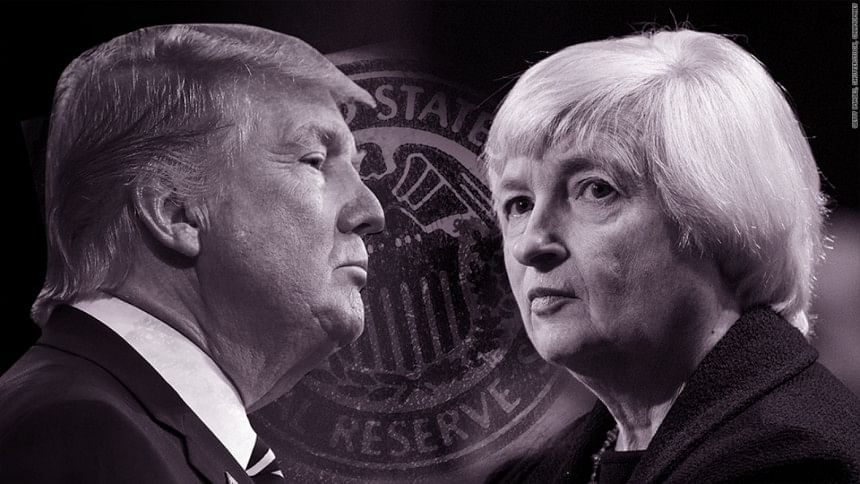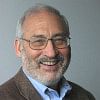Has Trump captured the Fed?

One of the important powers of any US president is to appoint members and heads of the many agencies that are responsible for implementing the country's laws and regulations and, in many cases, governing the economy. Perhaps no institution is more important in that regard than the Federal Reserve.
In exercising that power, Donald Trump has broken a long-standing pattern, going back almost a half-century, whereby the president reappoints (on a non-partisan basis) the incumbent Fed chair, if he or she has been seen to be doing a good job. Probably no chair has done a better job, in a particularly difficult moment, than Janet Yellen.
Whereas her two immediate predecessors greatly tarnished the Fed's reputation by looking the other way as massive risk was accumulating—and massive fraud occurring—within the financial sector, Yellen restored the Fed's reputation. Her calm and balanced hand nurtured broad consensus among a Federal Reserve Board characterised by divergent economic philosophies, and she navigated the economy through a slow recovery in a period when fiscal policy was unnecessarily constrained, as duplicitous Republicans hyped the dangers of deficits. The Republicans' shallow commitment to fiscal rectitude is now being exposed as they advocate massive tax cuts for corporations and billionaires that will add one and half trillion dollars to the deficit over the next decade.
To be fair, Trump chose a moderate, when many in his party were pushing for an extremist. Trump, never shy about conflicts of interest, has an uncanny ability to embrace economic policies, such as the proposed tax cuts, that benefit him personally. He realised that an extremist would raise interest rates—any real-estate developer's worst nightmare.
Trump broke with precedent in another way: he chose a non-economist. The Fed will face great challenges in the next five years, as it reverts to more normal policies. Higher interest rates could give rise to market turmoil, as asset prices undergo a significant "correction." And many are expecting a major downturn in the next five years; otherwise, the economy would have experienced an almost unheard-of decade-and-a-half expansion. While the Fed's tool kit has been greatly expanded in the last decade, the Fed's low interest rates and huge balance sheet— and the possibly massive increase in debt, should Trump get his tax cuts—would challenge even the best-trained economist.
Most importantly, there has been a bipartisan (and global) effort to depoliticise monetary policy. The Fed, through its control of the money supply, has enormous economic power, and such power can easily be abused for political purposes—say, to generate more jobs in the short run. But lack of confidence in central banks in a world of fiat money (where central banks can create money at will) weakens long-term economic performance, owing partly to fears of inflation.
Even in the absence of direct politicisation, the Fed always faces a problem of "cognitive capture" by Wall Street. That's what happened when Alan Greenspan and Ben Bernanke were in charge. We all know the consequences: the greatest crisis in three quarters of a century, mitigated only by massive government intervention.
Yet, somehow, the Trump administration seems to have forgotten what happened less than a decade ago. How else to explain its efforts to rescind the 2010 Dodd-Frank regulatory reforms, designed to prevent a recurrence? The consensus beyond Wall Street is that Dodd-Frank didn't go far enough. Excessive risk taking and predatory behaviour are still real problems, as we are frequently reminded (for example, by reports about the growing volume of subprime auto loans). In one of the more insidious recent instances of malfeasance, bankers at Wells Fargo simply opened accounts on behalf of customers, unbeknownst to them, so that it could collect additional fees.
None of this bothers Trump, of course, who as a businessman has been no stranger to nefarious practices. Fortunately, it appears that Powell recognises the importance of well-designed financial regulations.
But politicisation of the Fed should be viewed as just another part of Trump's battle against what his former chief strategist, Steve Bannon, has referred to as the "administrative state." That battle, in turn, should be viewed as part of a larger war against the Enlightenment legacy of science, democratic governance, and the rule of law. Upholding that legacy entails employing expertise as needed, and creating, as Edward Stiglitz of Cornell Law School has emphasised, trust in public institutions. A large body of research now supports the idea that societies perform more poorly without such trust.
Every few days, Trump does something to rend the fabric of US society and inflame its already-deep social and partisan divisions. The clear and present danger is that the country is growing so accustomed to Trump's outrages that they now appear "normal." For more than seven decades, America has fought—often fitfully, to be sure—to redeem its stated values, taking on bigotry, fascism, and nativism in all their forms. Now, America's president is a misogynist, racist xenophobe whose policies embody profound contempt for the cause of human rights.
One may approve or disapprove of the Republicans' tax proposals, efforts to "reform" health care (oblivious to the tens of millions who might lose insurance coverage), and commitment to financial deregulation (ignoring the consequences of the 2008 crisis). But, while the Fed may be safe for now, whatever possible economic benefits this agenda could bring pale in comparison to the magnitude of the political and social risks posed by Trump's assaults on America's most cherished institutions and values.
Joseph E Stiglitz, a Nobel laureate in economics, is University Professor at Columbia University and Chief Economist at the Roosevelt Institute. His most recent book is The Euro: How a Common Currency Threatens the Future of Europe.
Copyright: Project Syndicate, 2017.
www.project-syndicate.org
(Exclusive to The Daily Star)





Comments